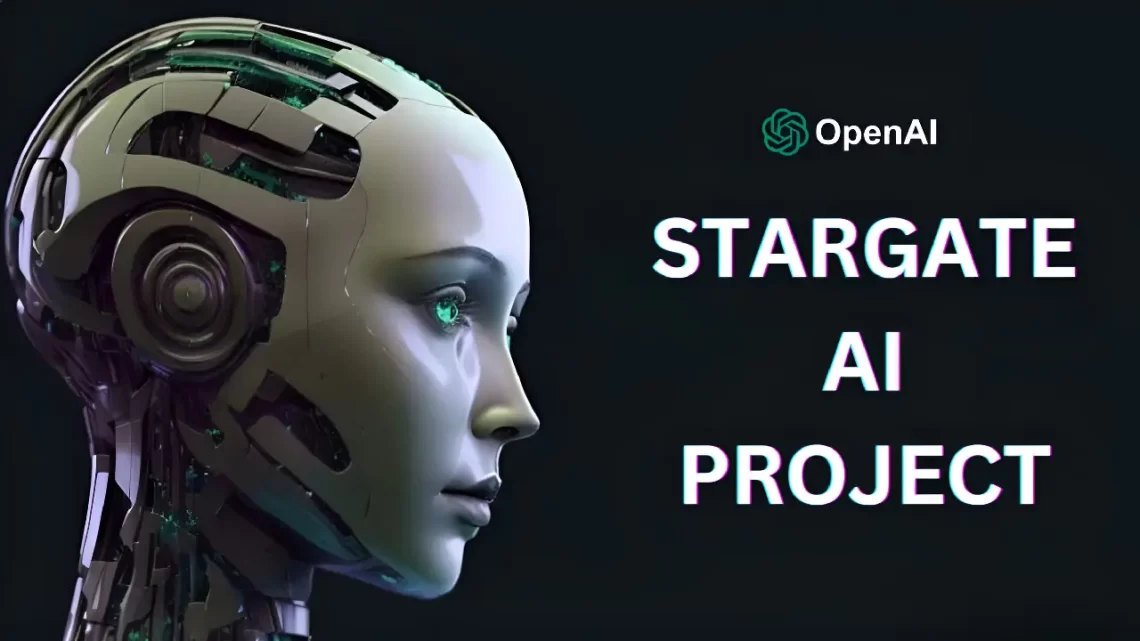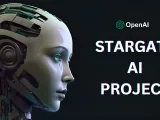
The Stargate Project: A $500 Billion Leap into the Future of AI and Its Transformative Impact on Health, Cancer Research, and Beyond
January 23, 2025The Stargate Project is not just another ambitious tech initiative—it’s a monumental leap into the future of artificial intelligence (AI) and its potential to revolutionize industries, economies, and lives. With a staggering $500 billion investment over the next four years, this project aims to secure American leadership in AI, create hundreds of thousands of jobs, and generate massive economic benefits globally. But beyond the headlines of economic growth and national security, Stargate has the potential to transform healthcare, cancer research, and the management of electronic health records (EHRs) in ways that could redefine human well-being.
What is the Stargate Project?
The Stargate Project is a collaboration between tech giants like OpenAI, SoftBank, Oracle, NVIDIA, and Microsoft, with the goal of building cutting-edge AI infrastructure. This initiative will involve constructing massive data centers, developing advanced AI models, and pushing the boundaries of artificial general intelligence (AGI)—AI systems capable of performing any intellectual task that a human can do. The project is already underway in Texas, with plans to expand across the United States.
While the economic and geopolitical implications of Stargate are significant, its potential to drive innovation in healthcare and medicine is equally groundbreaking. Let’s explore how this project could benefit humanity, particularly in the fields of health, cancer research, and EHRs.
AI and Healthcare: A New Era of Precision Medicine
One of the most promising applications of AI is in healthcare. The Stargate Project’s advanced AI infrastructure will enable the development of more sophisticated algorithms capable of analyzing vast amounts of medical data. This could lead to breakthroughs in precision medicine, where treatments are tailored to individual patients based on their genetic makeup, lifestyle, and environment.
For example, AI models trained on Stargate’s supercomputers could analyze genomic data to identify mutations linked to diseases like cancer, diabetes, and Alzheimer’s. This would allow doctors to prescribe personalized treatments that are more effective and have fewer side effects. Additionally, AI could streamline drug discovery by predicting how different compounds will interact with human cells, significantly reducing the time and cost of developing new medications.
Revolutionizing Cancer Research and Treatment
Cancer remains one of the most complex and challenging diseases to treat. However, the Stargate Project’s AI capabilities could accelerate progress in cancer research and treatment. By analyzing massive datasets from clinical trials, patient records, and genetic studies, AI could uncover patterns and insights that humans might miss.
For instance, AI could help identify early-stage cancers by analyzing medical imaging data with unprecedented accuracy. It could also predict how tumors will respond to specific treatments, enabling oncologists to design more effective therapies. Furthermore, AI-driven simulations could model the progression of cancer, helping researchers understand how it spreads and how to stop it.
The Stargate Project’s investment in AGI could take this even further. Imagine an AI system that can design entirely new cancer treatments by simulating molecular interactions or predicting the efficacy of experimental drugs. This could lead to faster cures and more accessible treatments for patients worldwide.
Transforming Electronic Health Records (EHRs)
Electronic health records (EHRs) are a critical component of modern healthcare, but they often suffer from inefficiencies, interoperability issues, and data silos. The Stargate Project’s AI infrastructure could revolutionize how EHRs are managed and utilized.
AI-powered systems could automatically update and organize patient records, reducing the burden on healthcare providers and minimizing errors. They could also analyze EHR data to identify trends and predict health risks, enabling proactive care. For example, AI could flag patients at risk of developing chronic conditions like heart disease or diabetes, allowing doctors to intervene early.
Moreover, the integration of AI with EHRs could enhance telemedicine and remote patient monitoring. Patients in rural or underserved areas could receive high-quality care through AI-driven diagnostics and virtual consultations, bridging gaps in healthcare access.
AI and Public Health: A Global Impact
The Stargate Project’s AI advancements could also have a profound impact on public health. By analyzing data from wearable devices, social media, and environmental sensors, AI could track the spread of infectious diseases in real time. This would enable faster responses to outbreaks and more effective containment strategies.
During the COVID-19 pandemic, AI played a crucial role in vaccine development and distribution. With the Stargate Project’s resources, future pandemics could be managed even more effectively. AI could optimize vaccine production, predict hotspots, and ensure equitable distribution of medical supplies.
Ethical Considerations and Responsible AI Development
While the potential benefits of the Stargate Project are immense, it’s crucial to address the ethical challenges associated with AI development. The massive energy consumption of data centers, data privacy concerns, and the risk of bias in AI algorithms are all issues that must be carefully managed.
The Stargate Project has an opportunity to set a global standard for responsible AI development. By prioritizing transparency, equity, and sustainability, it can ensure that the benefits of AI are shared by all and that its risks are mitigated.
Conclusion: A Bold Vision for the Future
The Stargate Project represents a bold vision for the future of AI and its potential to transform healthcare, cancer research, and electronic health records. By investing $500 billion in cutting-edge infrastructure, this initiative could unlock breakthroughs that save lives, improve health outcomes, and make healthcare more accessible and efficient.
As the project unfolds, it will be essential to balance innovation with responsibility, ensuring that AI serves as a force for good. If successful, the Stargate Project could not only secure America’s leadership in AI but also pave the way for a healthier, more equitable world. The future of AI is here—and it’s brighter than ever.


















